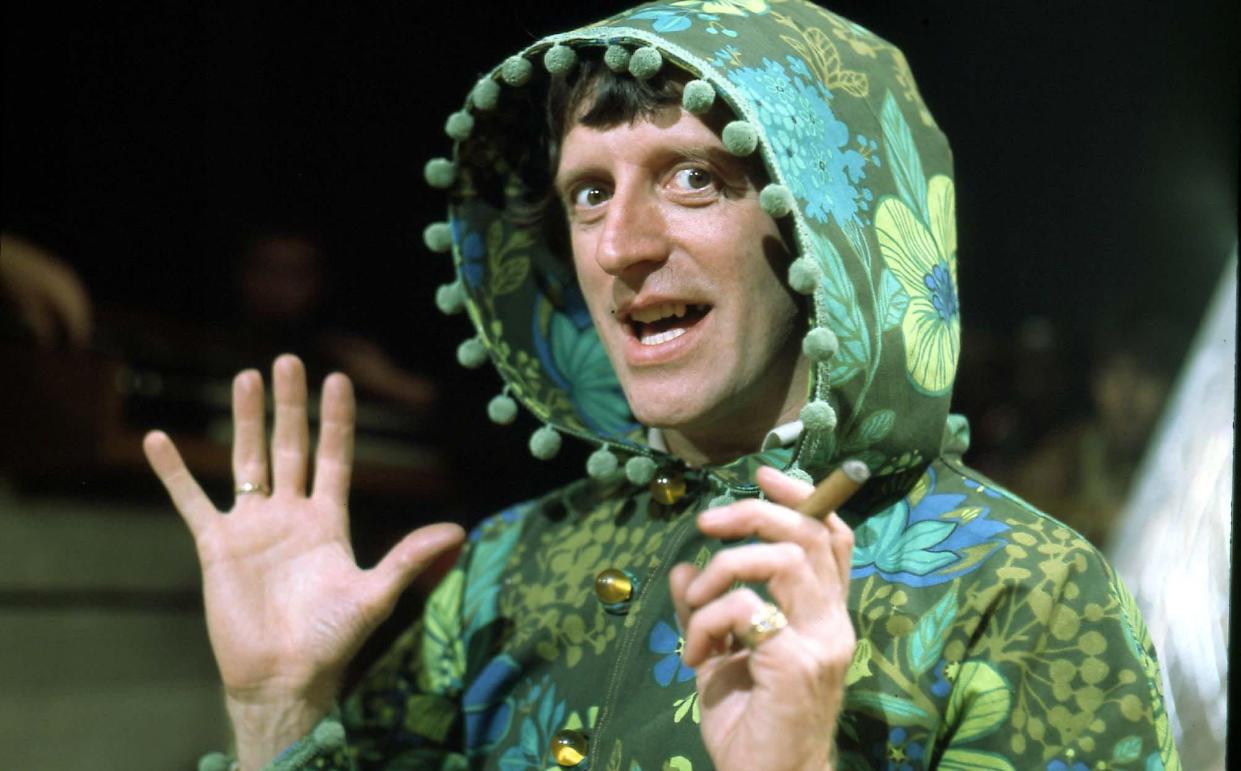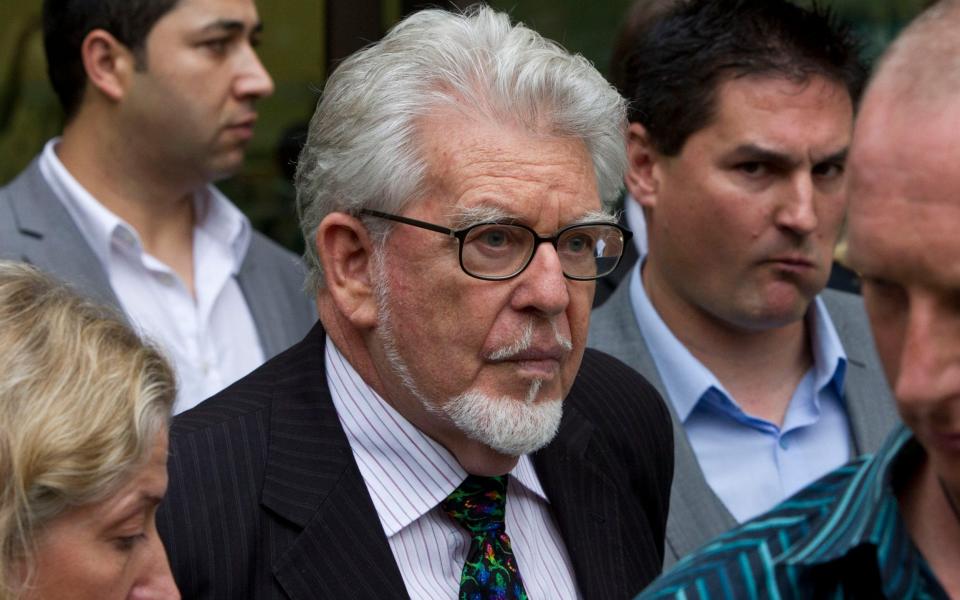The crimes of Jimmy Savile will haunt British television for years to come

- Oops!Something went wrong.Please try again later.
- Oops!Something went wrong.Please try again later.
- Oops!Something went wrong.Please try again later.
October 2022 marks the 10th anniversary of Operation Yewtree, the police crackdown that put behind bars sexual predators Gary Glitter, Rolf Harris and Stuart Hall. It was too late to hold to account Jimmy Savile, who died a free man. His story will, however, be told in an upcoming BBC dramatisation, in which Steve Coogan is set to play the cigar-chomping monster as a sort of demon Alan Partridge, plus next week’s Netflix documentary series A British Horror Story.
But first there was National Treasure, National Disgrace: Savile, Harris & Hall (Channel 5), a sprawling overview of the crimes perpetrated by Savile, Harris, Hall and Glitter. If slightly opportunistic – someone clearly wanted to get ahead of the inevitable deluge of Yewtree anniversary coverage – it at least gave a voice to victims. They included Vanessa Walker, attacked by It’s a Knockout presenter Hall on holiday in Yugoslavia in 1981. “I’m terminally ill,” she said. “I’ll never have a chance again to express what he did to me and others.” Walker died shortly after filming for this documentary was completed.
But while there can never be enough reminders of the evils perpetuated by these once beloved family entertainers, the film, narrated by Judi Dench-soundalike Karen Archer, broke no new ground. It was to be praised for never tipping into sensationalism and the sort of cheap shock tactics beloved of true-crime TV (on Channel 5 especially). And yet, for anyone familiar with these men and their crimes – and it’s hard to imagine anyone in Britain who isn’t – there was a sense of raking over old ground.
One problem was that National Treasure, National Disgrace didn’t hold directly to account representatives of the institutions which had turned a blind eye to these misdeeds. No BBC executive was interviewed about its disgraceful nixing of a Newsnight exposé of Savile following his death (although one of the journalists behind the story, Meirion Jones, did appear). And the only police we heard from were officers involved in Yewtree – rather than those who had failed to do anything about Savile and his motley peers in the preceding decades.

Still, as an act of bearing witness, the documentary was appropriately shocking and stomach-turning. A veil was respectfully drawn over the awful specifics of the crimes perpetuated by Savile and the rest. Nonetheless victims were given the floor and allowed to talk.
“He wouldn’t move his hand. I was getting embarrassed. You’re stuck, you can’t move anywhere,” said Sylvia Edwards, abused live on Top of the Pops by a shameless Savile in 1976. Walker described fleeing Hall, who shoved a foot in the door as she tried to escape his unwelcome advances. There was horrific footage of Glitter on This Is Your Life in 1992 slyly putting finger to lips when friend Tessa Dahl (completely ignorant of his criminal activity) described how her family home had become “a Gary Glitter fanclub outpost” attended by “train-loads of school girls”.
The going was grim. There was so much tragedy, so many lives destroyed. However, former BBC One controller and Channel 4 chief executive Michael Grade pointed out that matters had improved to the extent that victims coming forward today would at least receive a fair hearing. “People in authority – police, social services - really know now they have to listen,” he said.
This was hardly an upbeat conclusion. Still, there was some comfort in knowing that, today, a monster such as Savile would surely stand a far greater chance of being uncovered rather than allowed to live out his days, reputation unblemished. It wasn’t much, but it was something.

